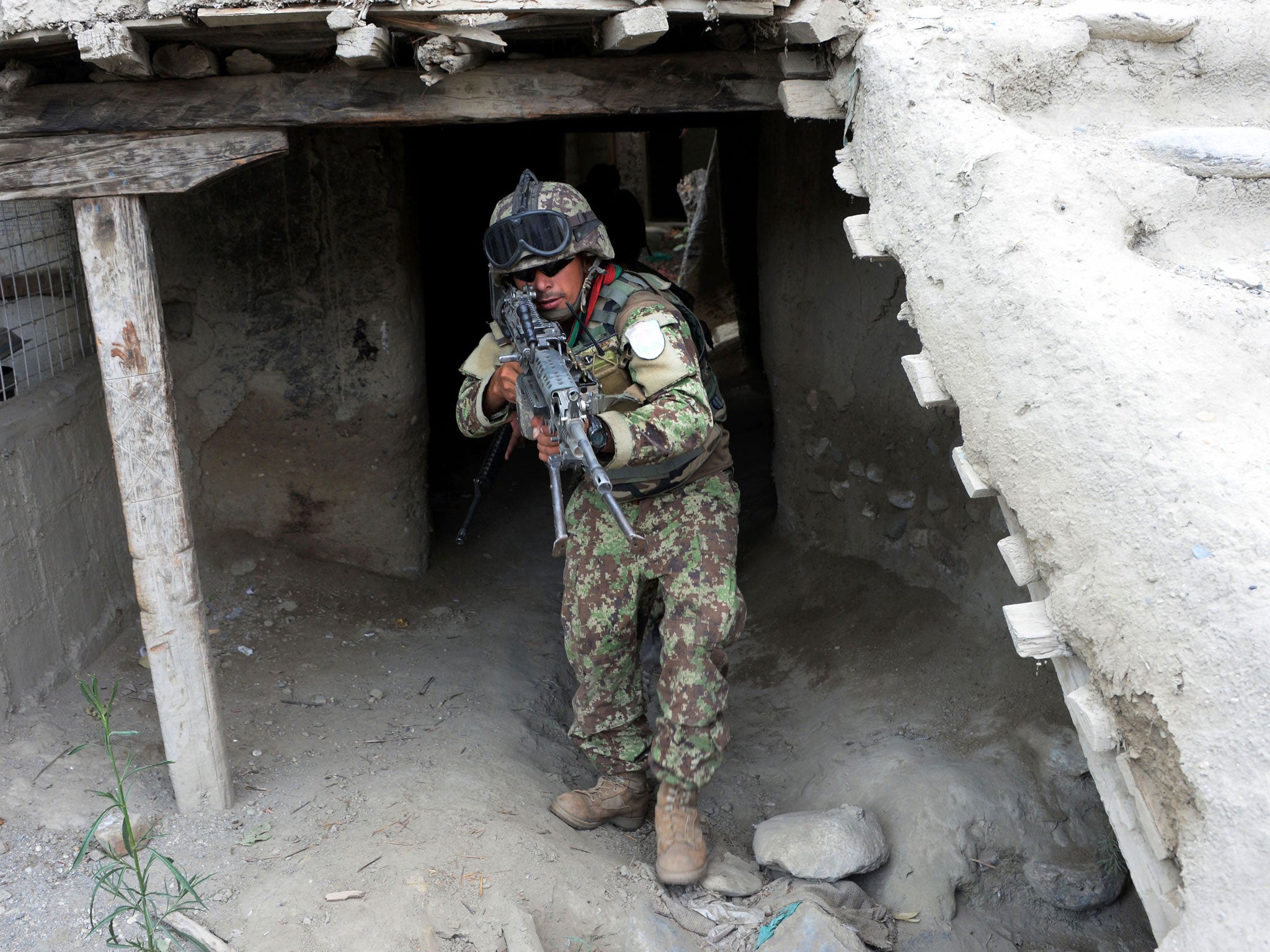Afghan forces still losing ground to Taliban despite $68bn in US funding
Taliban fighters are estimated to hold more ground than at any time since 2001, when US troops forced them from power

The Afghan government lost five per cent of its territory to the Taliban in the first five months of this year, according to a US government watchdog, leaving it with a claim to less than than two thirds of the country’s districts.
Taliban fighters are estimated to hold more ground than at any time since 2001, when American forces forced them from power and emptied al-Qaeda training bases.
The report, published by the Special Inspector General for Reconstruction (Sigar), paints a bleak picture since the US ended combat operations in 2014 and passed responsibility for security to a faltering government in Kabul.
At the same time, it points out that American spending in support of the Afghan National Defence and Security Forces is now more than $68 billion (£51bn).
Yet the result is that the country seems as far from peace as ever.
This week the United Nations reported that 1,601 people had been killed in violence - a third of them children - and 3,565 were injured in the first six months of the year, making a four per cent increase over the same period in 2015.
At the same time, local forces and remaining American troops must contend with insurgents flying the Isis flag.
Five US special operations troops were wounded in combat with Isis fighters this week in eastern Afghanistan, according to the US military.
The latest assessment, reported by Sigar, suggests insurgents have made inroads into 10 more districts so far this year.
The report said the area under Afghan government “control or influence” had decreased to 65.6 percent by the end of May from 70.5 percent near the end of January, based on data provided by US forces in Afghanistan.
The commander of US Forces in Afghanistan, General John Nicholson, said most of the areas the Taliban control were rural.
“They believed they were going to be able to seize and hold terrain, and they failed to do so,” Gen Nicholson told a Pentagon briefing via video link, according to Reuters.
The insecurity has prompted Barack Obama to freeze plans to withdraw the remaining American troops from the country. For now, 8400 will stay in Afghanistan until the end of his presidency as part of a counter-terrorism programme and as part of a Nato-led mission to train and assist local forces.
The report also spells out the challenges in other sectors. Afghanistan has one of the lowest electrification rates in the world with only one in three Afghans connected to a power grid, despite the US setting aside $3 billion for power projects since 2002.
Join our commenting forum
Join thought-provoking conversations, follow other Independent readers and see their replies
Comments